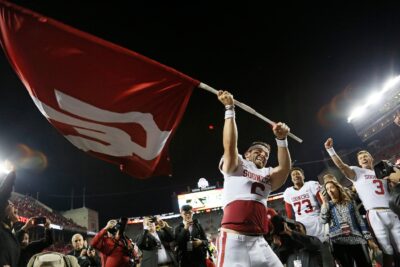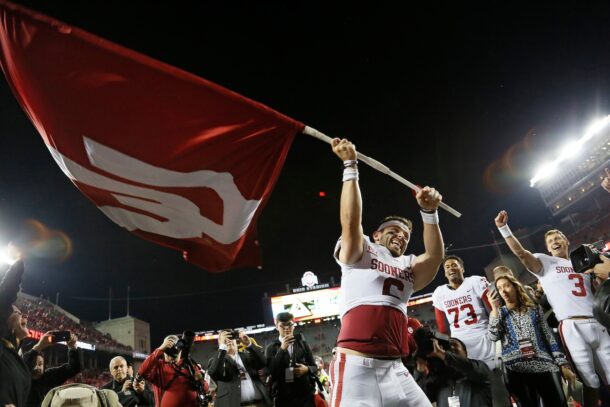He’s the person the players either can’t wait to see, or never want anything to do with. The time of year plays a significant part in the odd dynamic, but there’s often very little in between.
“That’s a fair assessment,” said University of Alabama’s head football trainer Jeff Allen, who during the spring and summer doubles as King Cooler of the practice fields – manning the water gun that’s attached to a four-wheeler and large water tank on wheels to make the elaborate contraption portable.
“It’s great. We use the heck out of it.”
The idea stemmed from one of Allen’s first football camps at the Capstone, when he was trying to figure out the best way to cool off approximately 1,200 kids every day in the Alabama summer heat.
He grabbed his power washer from home and hooked it up to a hose that didn’t give him much space to roam. So when the dean of the engineering school happened to attend a practice soon after Allen started asking the right questions and Charles Karr pointed out that a lot of his students had to design and build a project from scratch as part of their curriculum.
It’s now a regular part of training camp.
“I’ve used it to my advantage,” senior guard Arie Kouandjio said. “I believe it does help. It helps cool you down a little bit. It’s like rain.”
While hosing down hot players with a light spray is when Allen’s most popular, the exact opposite is true the rest of the time because it usually means dealing with some sort of injury.
When a player goes down during a game he’s usually the first one out on the field to help, and similarly when someone leaves the sideline for further examination he’s the one who runs back and delivers the news to Nick Saban.
Nevertheless, Allen and the two other full-time football trainers, Ginger Gilmore and Jeremy Gsell, two certified graduate assistants and the 15 students who work with the staff throughout the fall, still get pretty close to the players and in tandem with the nutrition and weight room staffs continually look for ways to help the players perform better.
Ironically, it was an injury of his own, at perhaps the last place a Crimson Tide fan would expect, that started him down the long road to Tuscaloosa, Neyland Stadium.
Growing up in Georgia, Allen was pretty much a Southeastern Conference guy from the start, but his father had been born and raised in Tennessee so the family rooted for the Volunteers. While he doesn’t talk about that too much around the Crimson Tide football offices (or his only job as an assistant trainer at Kentucky), before his senior year of high school Allen attended the Johnny Majors Football Camp.
At the time he was a self-described average linebacker, but one person who caught his eye was Tennessee’s head trainer Tim Kerin. Curious about the profession and what it entailed Allen asked if he could pick his brain about his job and the immediate response was “Absolutely.”
The next day, Allen tore the ACL in one of his knees.
“He’s on the field, I’ll never forget it, Neyland Stadium for camp,” Allen said.” He comes out there and he’s looking at my knee and I can still, 26 years later, remember …
“He goes, ‘Son, I think you picked your career.’
“Now it’s a good memory, because that moment really changed my life.”
After high school Allen attended Georgia Southern, graduating in 1993 with a bachelor’s degree in health and physical education, followed by graduate school at Valdosta State, where he met his wife.
“She’s a Georgia graduate,” he said about his Mary, who teaches in Alabama’s speech pathology department and coordinates the adult clinic. “The first few years she struggled with that a little bit.”
Following Kentucky, Allen served as the head athletic trainer at Tennessee-Chattanooga for four seasons, and three at Central Florida. At the time the Knights’ defensive coordinator was Lance Thompson, who in 2007 jumped at the chance to work for Nick Saban again (he had previous at LSU, 2002-03). With Robbie Brown making the switch to Director Rehabilitation Services, Alabama’s football program was in need of a new head trainer.
Thompson suggested Allen to Saban, who at the time was hitting the recruiting trail hard so the in-person interview was put off until May. They finally sat down together on a Thursday, the formal offer was made the next day and Allen started before the end of the weekend.
“When I was at Central Florida I liked being there, we liked living there,” Allen said. “I told myself that I’m not going to leave here for just anywhere, but Alabama’s not just anywhere. It’s still one of the elite programs.
“I don’t think I ever could have predicted what’s happened here over the past seven years, and what’s taken place, not even close. But I knew that he was going to win here.”
Three national championship rings and a lot ice baths later and Alabama’s assistant athletic director for sports medicine still heads one of the most unnoticed and yet successful aspects of the athletics department, and is helping change the way football players recover from major injuries.
A good example is with the AlterG Anti-Gravity Treadmill that was initially purchased to help Eddie Lacy with the toe injury some feared could be career threatening. It allowed him to run and stay in shape when he wasn’t supposed to be putting much weight and pressure on the injured area for months.
So Alabama made the investment — the top-end model costs approximately $75,000 — and it made a huge difference with numerous other athletes as well, like former offensive lineman Barrett Jones.
“He got injured in the Georgia game and that’s obviously four weeks before we play (Notre Dame in the BCS Championship), and he had a bad foot injury that we knew was going to require surgery,” Allen said. “He wanted to play in his last game, but we couldn’t run him for a month.”
Not only did Jones use the special treadmill almost daily in Tuscaloosa, Allen had the manufacturer ship another one to Miami so the starting center could keep conditioning during the week leading up to the game.
“He practiced maybe three times before we played Notre Dame, and in those practices he probably did what (reporters) get to see and that was about it,” said Allen, who remains on the lookout for new and better ways of treatment, but turns down a lot more than what he accepts.
It’s just another way in which three’s no such thing as a typical day with his job.
“It really never stops” he said.
Christopher Walsh has covered Alabama football since 2004 and is the author of 19 books. In his free time, he writes about college football.







